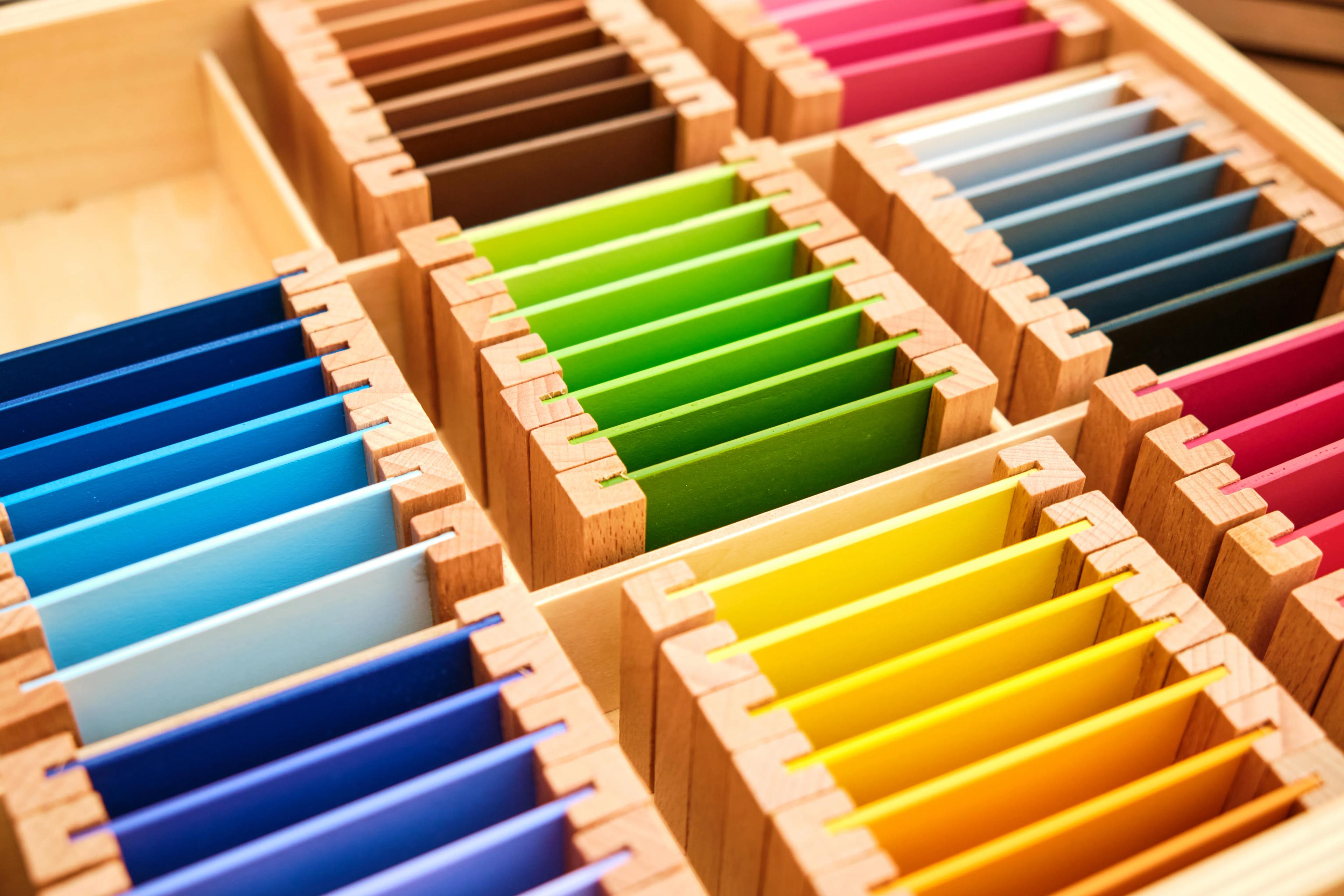The Montessori philosophy places great importance on Order. This approach to education believes that a well-ordered environment helps children to feel secure, confident, and focused, which in turn helps them to learn and develop to their full potential.
Physical Order
In Montessori, physical order refers to the arrangement of the environment, materials, and activities. A well-ordered Montessori classroom is neat, tidy, and organised, with everything in its place. This type of order provides children with a clear and consistent framework, and helps them to understand the expectations for their behaviour and activities.
Here are some of the key elements of physical order in Montessori:
- Classroom layout: The Montessori classroom is typically arranged in a clear and simple manner, with areas designated for different activities, such as practical life, sensorial, and language.
- Materials: All materials in the Montessori classroom are organised and easily accessible, with labels that are clear and simple. This helps children to know where everything is, and to feel confident and independent when they're working.
- Activities: Montessori activities are designed to be self-correcting, which means that children can easily understand whether they're doing something correctly or not. This helps to build confidence and encourages children to take control of their own learning.
Conceptual Order
In addition to physical order, Montessori places great importance on conceptual order. This refers to the arrangement of ideas, concepts, and knowledge in a logical and meaningful way. The Montessori approach to education believes that children learn best when they understand the underlying structure of what they're learning.

Here are some of the key elements of conceptual order in Montessori:
- Sequence of learning: Montessori materials are designed to build upon one another, with each step in the learning process leading logically to the next. This helps children to understand the relationships between different concepts and ideas.
- Classification: Montessori materials are also designed to help children categorise and understand the relationships between different things. This helps to build a strong foundation for later learning, and encourages children to think critically and creatively.
- Abstract concepts: Montessori materials are designed to help children understand abstract concepts, such as numbers, letters, and shapes. This helps to build a strong foundation for later learning, and encourages children to think critically and creatively.
In conclusion, order plays a crucial role in Montessori philosophy, helping children to feel secure, confident, and focused. Whether you're a parent, teacher, or simply interested in Montessori, understanding the importance of order is a key step in helping children to reach their full potential.

